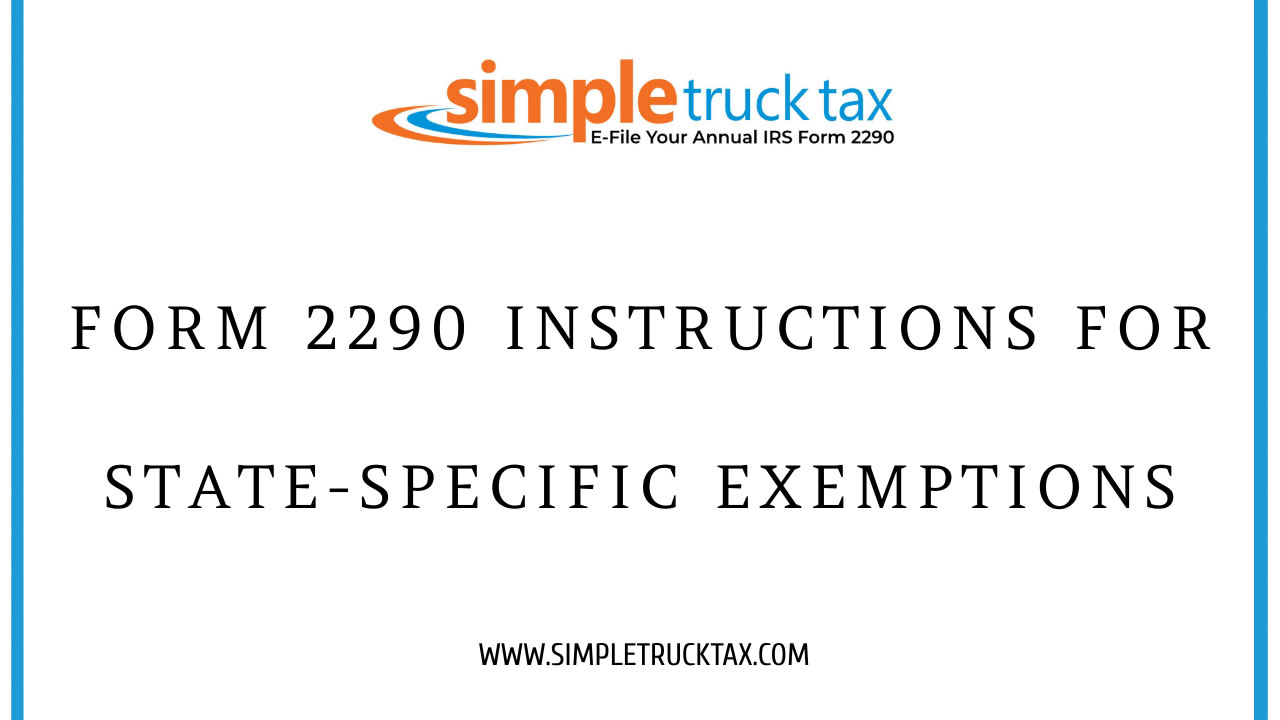
Form 2290 Instructions for State-Specific Exemptions
Although the Heavy Vehicle Use Tax (HVUT) applies to heavy vehicles used on public highways, some states grant exemptions or offer special considerations. It is important for truck owners and operators to understand these exemptions that are unique to each state so they can comply with both federal and local laws. We will give instructions for Form 2290 on state-specific exemptions and considerations.
Federal vs State Rules
Federal HVUT Requirements
The HVUT is regulated mainly by the Internal Revenue Service (IRS) according to federal laws. The tax must be paid for all heavy vehicles that have a gross weight of 55,000 pounds and operate on public highways.
Exemptions Depending On The State
However, there are states which exempt certain vehicles from this regulation or provide different conditions for it. These exceptions might relate to particular industries types of transports carried out within borders of given state etc.
Identification Of State Exemptions
Study State Laws
Prior to submitting Form 2290, it is important to know what rules and exemptions a state (or states) has for your vehicles operating there. Normally, such information can be found on the website of department of revenue or taxation of each particular state.
Contacting State Governments
If there are any doubts as to whether there are exemptions that apply only at local level or if specific vehicles qualify, one should always seek advice from relevant authorities within these areas as well as from professional tax consultants who deal with state taxes regularly. They will be able to provide necessary guidance taking into consideration individual cases and help you stay compliant.
Completing Form 2290
Federal Form Requirements
When completing Form 2290, you must provide precise details about your vehicles such as their taxable gross weight and the total mileage traveled during the taxable period
Indicate State Exemptions
Where applicable, specify if any of your vehicles are exempt from tax based on state laws; this will ensure that both federal and state taxes are paid correctly
Filing Process
Federal Filing
Form 2290 should be filed electronically with the IRS even if there are some state-specific exemptions. Most vehicles must file by August 31 each year
State Reporting
In addition to the federal filing requirements, some states may require separate reporting or documentation for vehicles that qualify for state-specific exemptions. Follow any other state reporting rules so as not to incur penalties or fines
To comply with federal and state tax laws, truck owners need to know all about state-specific exemptions. It is important for people who own or operate heavy highway vehicles because different states have different criteria which can be exempted from this Internal Revenue Service (IRS) administered tax although most do not offer any at all. This means one should do research on what each state’s regulation says as well as talking with experts like state revenue department personnel among others besides filling out form 2290 correctly.
Note: For more information, visit IRS website